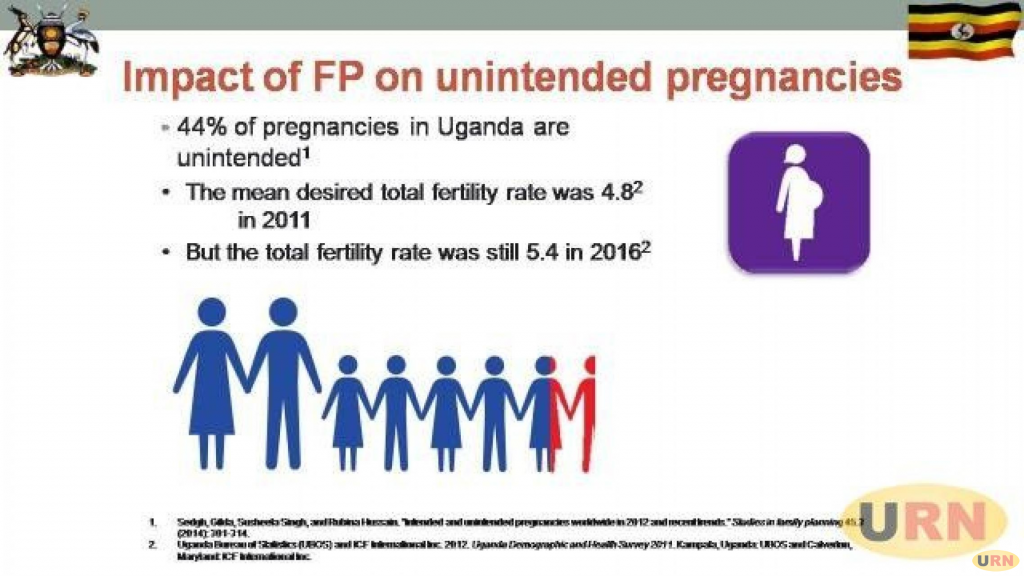The low uptake of family planning services is increasing Uganda’s population burden, as mothers continue to get unintended pregnancies.
Dr Simon Peter Kibira, a researcher and lecturer in the Department of Community Health and Behavioral Sciences at Makerere University quotes a Performance Monitoring and Action survey conducted by Makerere University School of Public Health, which established that almost half of all mothers they talked to during the survey, did not intend to have their last pregnancies.
The survey undertaken between September and October 2020 indicates that 44 per cent of all pregnancies in Uganda are accidental, a trend that contributes to rapid population growth and threatens the achievement of socio-economic development of the country. Dr Kibira explains that the figure is a direct implication that many women in the reproductive age-group have a poor uptake of the available birth control methods.
According to Kibira, the survey established that a significant number of unintended pregnancies are by adolescent mothers aged between 15 and 19, who are literally not ready for parenting responsibilities. The survey also points out a high prevalence of unabated habits of sexual abuse against teenagers.
Meanwhile, Dr Kibira says that they are sharing their survey findings with the various stakeholders in different parts of the country as a way of triggering interventions towards reversing the trend and the associated consequences.
Dr Betty Kyadondo, the Director of Family Health at the National Population Council who was also part of the survey says that the untamed rate of reproduction is presenting dire consequences to the country’s development projections. She says it’s high time the different sectors combined their efforts to encourage the use of family planning methods for purposes of having deserving health and productive population.
According to her, the country is still registering a high number of abortions, estimated to be 415,000 annually, most of which are unsafe. She says that such incidences can be addressed by effective and open use of family planning services.
Figures by the United Nations Children Fund-UNICEF Uganda indicate that contraceptive use remains very low, with only 26 per cent of married women and 43 per cent of sexually active unmarried women using a modern contraception method in Uganda.
In 2020, Uganda registered a total of 1,669,000 births, representing a population growth rate of 2.64 per cent; according to the Uganda Bureau of Statistics-UBOS.
Accidental pregnancies pushing Uganda’s population burden up
Do you want to share a story, comment or opinion regarding this story or others, Email us on info@newsday.co.ug or ,Tel/WhatsApp........0702451828




